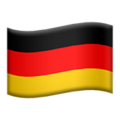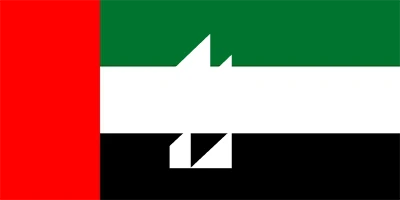“Dubai is by far the best place to be operating in the region from a legal standpoint, for connectivity, and for living conditions.” — said Martin Tronquit, Infomineo’s managing partner.
Dubai is one of the most vibrant and dynamic cities in the world, and a major hub for global trade. With its strategic location, world-class infrastructure, business-friendly environment, and diverse trade sectors, Dubai offers unparalleled opportunities for traders of all sizes and backgrounds.
In this blog, we will explore how Dubai’s location & infrastructure makes it the hotspot of global trade. Whether you are looking for new markets, suppliers, partners, or customers, Dubai has something for everyone. Read on to find out more
How Dubai’s Strategic Location and Infrastructure Boost Trade.
Dubai is a city-state in the United Arab Emirates (UAE) that has emerged as a leading global trade hub and a re-export zone for commodities on the Europe/East Asia trade route. Dubai’s strategic location, connectivity, ports, airports, free zones, and other infrastructure facilitate trade with different regions and markets. This essay will explain how these factors contribute to Dubai’s trade success.
Strategic Location
Dubai is situated at the crossroads of the East and West, offering unparalleled access to the world’s largest emerging growth markets. With 2.5 billion people living within a four-hour flight, and 5 billion within an eight-hour flight or less, the city acts as a nerve center for trillions of dollars of business and investment into the Middle East, Europe, Africa, India, Asia, and beyond. Dubai’s geographical position also enables it to benefit from different time zones, allowing it to operate round-the-clock and serve as a link between global markets.
Connectivity
Dubai has invested heavily in developing its transport infrastructure and logistics capabilities, ensuring seamless connectivity by land, sea, and air. The city operates two of the world’s largest ports, Jebel Ali Port and Port Rashid, which can handle over 22.4 & 1.5 million TEUs (twenty-foot equivalent units) of containerized cargo annually respectively. Jebel Ali Port is also home to the Jebel Ali Free Zone (JAFZA), one of the world’s largest free trade zones, offering incentives and facilities for over 8,700, including 100+ Fortune Global 500 companies, from 130+ countries. Dubai also boasts a ranking of the world’s 5th best shipping hub, with Dubai International Airport (DXB) and Al Maktoum International Airport (DWC) serving over 270 destinations and a combined capacity of 15 million tonnes of air freight per year. Dubai’s roads are also well-developed and integrated with the ports and airports, facilitating the movement of goods and people within and outside the city.
Ports
Dubai’s ports are among the most advanced and efficient in the world, offering state-of-the-art facilities and services for shipping lines, traders and customers. Jebel Ali Port is the world's ninth busiest port, and largest container port in the Middle East, with a capacity of 22.4 million TEUs. It has 67 berths, 24 of which are dedicated to deep-water mega vessels, and covers an area of over 134 square kilometers. Jebel Ali Port also features a fully automated terminal that can handle 4 million TEUs per year with minimal human intervention4. Port Rashid is another major port in Dubai, located closer to the city center and serving mainly cruise ships, regional traders and local businesses. It has 35 berths, including 13 for cruise vessels, and can accommodate up to 14,000 passengers per day. Both ports are equipped with modern technology and systems that enable fast clearance, security, and tracking of cargo.
Airports
Dubai’s airports are also key drivers of trade and tourism, connecting the city with the rest of the world. Dubai International Airport (DXB) is the world’s 5th busiest airport by international passenger traffic, serving over 66 million passengers in 2022. It is also one of the most busiest airports by cargo traffic, handling over 1,727,815 million tonnes of freight in 2022. DXB has three terminals, including Terminal 3 which is exclusively for Emirates Airlines, Dubai’s flagship carrier that flies to over 158 destinations worldwide. Al Maktoum International Airport (DWC) is Dubai’s second airport, located near Jebel Ali Port and JAFZA. It is designed to be the world’s largest airport when completed, with a planned capacity of 260 million passengers and 15 million tonnes of cargo per year.
Free Zones
Dubai’s free zones are special economic zones that offer various incentives and benefits for businesses operating within them. These include 100% foreign ownership, zero corporate and personal income tax, full repatriation of capital and profits, exemption from import and export duties, streamlined customs procedures, low-cost utilities and infrastructure, and access to skilled labor. Dubai has over 40 free zones that cater to different sectors and industries, such as JAFZA for trade and logistics, Dubai International Financial Centre (DIFC) for finance and banking, Dubai Media City (DMC) for media and entertainment, Dubai Internet City (DIC) for information and communication technology, Dubai Healthcare City (DHCC) for healthcare and wellness, and Dubai Design District (d3) for design and fashion. These free zones attract thousands of local and foreign companies, creating a vibrant and diverse business environment that fosters innovation and collaboration.
Other Infrastructure
Dubai also has other infrastructure that supports its trade and economic activities, such as power and water supply, telecommunications, public transport, hospitality, and tourism. Dubai has one of the most reliable and affordable electricity and water systems in the region, with a capacity of over 11,000 megawatts of power and 470 million gallons of water per day. Dubai also has a robust and modern telecommunications network, with over 95% smartphone penetration and over 99% internet penetration. Dubai’s public transport system consists of metro, tram, bus, taxi and water taxi services, covering over 87% of the urban area and carrying over 621 million passengers per year. Dubai’s hospitality and tourism sector is also a major contributor to its economy, with over 14 million visitors in 2022 spending over US$33 billion. Dubai has 610 hotels and several resorts, offering rooms and suites for various budgets and preferences. Dubai also has many attractions and landmarks that draw tourists from around the world, such as Burj Khalifa — the world’s tallest building, Palm Jumeirah — the world’s largest artificial island, Dubai Mall — the world’s largest shopping mall, and Expo 2020 Dubai — the world’s largest expo event.
If you own a trading business in Dubai, the future looks promising for you. And if you don’t, what are you waiting for? Take our logistics, ports & intermodal, and 3rd party logistics solutions to set up and grow your trading business in no time.
Write us at info@zoltanproperties.com or call on +91 8448448804 for more details

 IN
IN
 France
France
 Germany
Germany
 Greece
Greece
 India
India
 Saudi Arabia
Saudi Arabia
 Spain
Spain
 United Arab Emirates
United Arab Emirates
 United Kingdom
United Kingdom
 United States
United States






